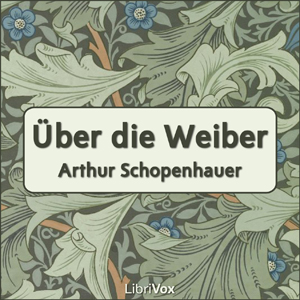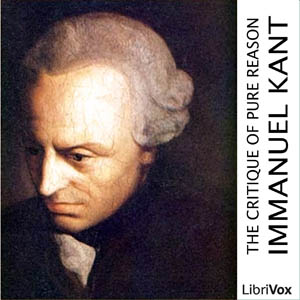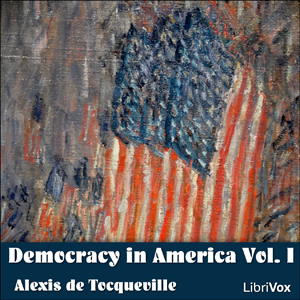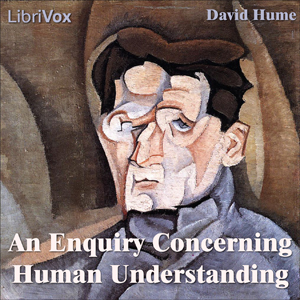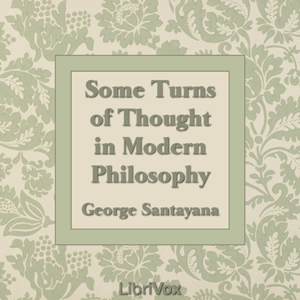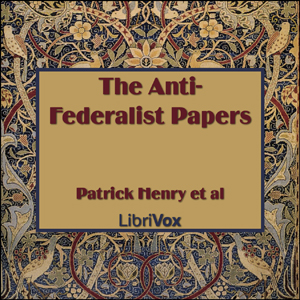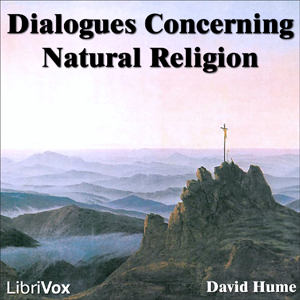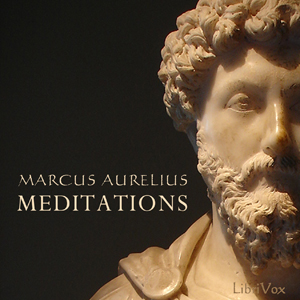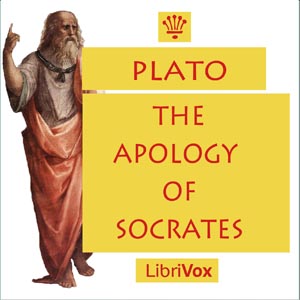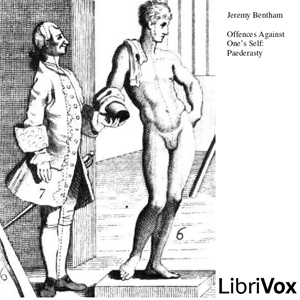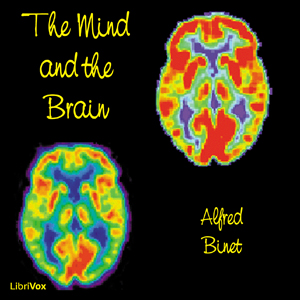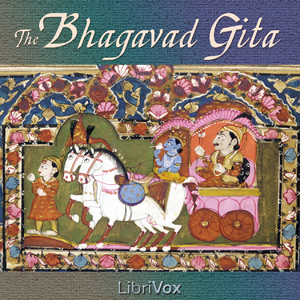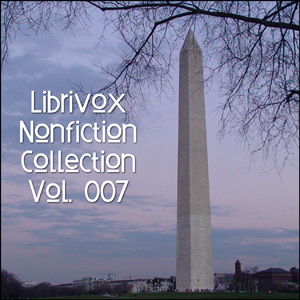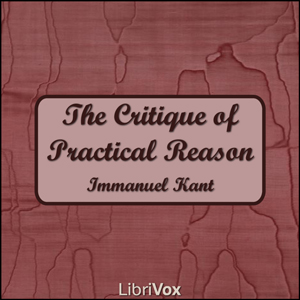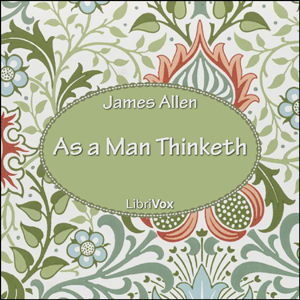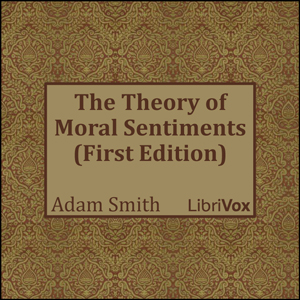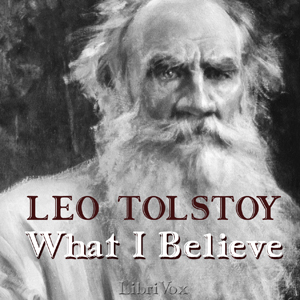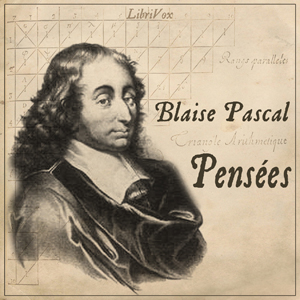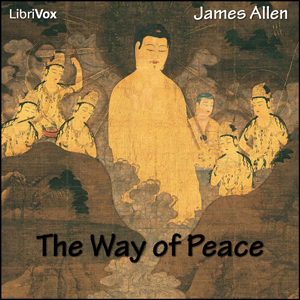First published in 1886 at Nietzsche’s own expense, the book was not initially considered important. In it, Nietzsche denounced what he considered to be the moral vacuity of 19th century thinkers. He attacked philosophers for what he considered to be their lack of critical sense and their blind acceptance of Christian premises in their considerations of morality and values. Beyond Good and Evil is a comprehensive overview of Nietzsche’s mature philosophy.
(Summary from Wikipedia)
10 episodes

Mary Everest Boole (1832-1916) was born Mary Everest in England and spent her early years in France. She married mathematician George Boole. She was the author of several works on teaching and teaching mathematics in particular.
This short book, Philosophy and Fun of Algebra, is meant to be read by children and introduces algebra and logic. She uses the word “algebra” broadly, defining it as a “method of solving problems by honest confession of one’s ignorance”. Using this definition, Boole introduces, in a conversational manner, the concepts of logic and algebra, illustrating these concepts with stories and anecdotes, often from biblical sources. At times, her discussion seems somewhat mystical, speaking of the imagination and angels as messengers which guide one toward the next step in a logical investigation. Boole ends the book with a reminder that algebra’s essential element is “the habitual registration of the exact limits of one’s knowledge” and a call for the public to keep this principle in mind when encountering any situation.
(Summary written by Patricia Oakley)
18 episodes
Rabindranath Tagore was a Bengali poet, philosopher, visual artist, playwright, composer, and novelist whose work reshaped Bengali literature and music in the late 19th and early 20th centuries. He became Asia’s first Nobel laureate when he won the 1913 Nobel Prize in Literature.
Sadhana is a collection of essays, most of which he gave before the Harvard University, describing Indian beliefs, philosophy and culture from different viewpoints, often making comparison with Western thought and culture.
(Summary by Peter Yearsley/Wikipedia)
8 episodes
Published in 1859, On Liberty details Mill's view that individuals should be left wholly free to engage in any activity, thought or belief that does not harm others. Simple though it sounds, it is a position that challenges our ideas on the very nature of government and society, and sheds light on some of the key issues we face today. A key text of political philosophy, On Liberty has been continuously in print since its first publication. (Summary by David Barnes).
6 episodes
ll Principe (The Prince) is a political treatise by the Florentine writer Niccolò Machiavelli, originally called “De Principatibus” (About Principalities). It was written around 1513, but not published until 1532, five years after Machiavelli’s death. The treatise is not actually representative of his published work during his lifetime, but it is certainly the best remembered one.
(Summary from Wikipedia.org)
16 episodes
Lao-Tze's Tao Teh King illuminates The Tao: a guiding principle of the universe and all within it. By exploring the nature of dualities and complements, Lao-Tze dissects strength and weakness; presence and absence; life and death. The Tao Teh King has served as a foundation for centuries of philosophy and wisdom.(Summary by Eric S. Piotrowski)
9 episodes
In diesem vielzitierten Essay aus dem Jahre 1851 ist Schopenhauers generell herablassende Einstellung zu Frauen zusammengefaßt. Frauen, laut Schopenhauer, sind Wesen zweiter Klasse mit weniger Vernunft als Maenner, und sind biologisch zur List und Intrige getrieben... Schopenhauers dominante Mutter Johanna, eine bekannte Schriftstellerin, wird oft als Ursache für die Frauenfeindlichkeit ihres Sohns genannt.
(Zusammenfassung von Gesine)
1 episodes
Thomas Huxley, known as “Darwin’s Bulldog” for his championing and development of Darwinism, was perhaps the most important Victorian biologist after Darwin himself. This speech to the Metaphysical Society in 1870 is one of Huxley’s best known texts outside the sphere of his specialism, and remains read today by students of philosophy. In it, Huxley argues from the results of vivisection to metaphysics. (Summary by CarlManchester)
1 episodes
William James (1842 – 1910) was a pioneering American psychologist and philosopher. He wrote influential books on the young science of psychology, educational psychology, psychology of religious experience and mysticism, and the philosophies of pragmatism and Radical Empiricism.Essays in Radical Empiricism is a collection edited and published posthumously by his colleague and biographer Ralph Barton Perry in 1912. It was assembled from a collection of reprinted journal articles published from 1904–1905 which James had deposited in August, 1906, at the Harvard University for supplemental use by his students. (Wikipedia)
15 episodes
The Critique of Pure Reason, first published in 1781 with a second edition in 1787, has been called the most influential and important philosophical text of the modern age.Kant saw the Critique of Pure Reason as an attempt to bridge the gap between rationalism (there are significant ways in which our concepts and knowledge are gained independently of sense experience) and empiricism (sense experience is the ultimate source of all our concepts and knowledge) and, in particular, to counter the radical empiricism of David Hume (our beliefs are purely the result of accumulated habits, developed in response to accumulated sense experiences). Using the methods of science, Kant demonstrates that though each mind may, indeed, create its own universe, those universes are guided by certain common laws, which are rationally discernable. (Summary by Ticktockman)
48 episodes
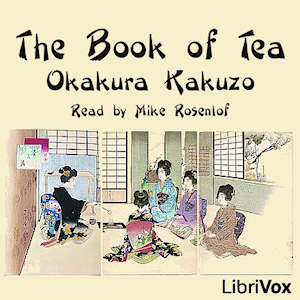
The Book of Tea was written by Okakura Kakuzo in the early 20th century. It was first published in 1906, and has since been republished many times. - In the book, Kakuzo introduces the term Teaism and how Tea has affected nearly every aspect of Japanese culture, thought, and life. The book is noted to be accessibile to Western audiences because though Kakuzo was born and raised Japanese, he was trained from a young age to speak English; and would speak it all his life, becoming proficient at communicating his thoughts in the Western Mind. In his book he elucidates such topics as Zen and Taoism, but also the secular aspects of Tea and Japanese life. The book emphasises how Teaism taught the Japanese many things; most importantly, simplicity. Kakuzo argues that this tea-induced simplicity affected art and architecture, and he was a long-time student of the visual arts. He ends the book with a chapter on Tea Masters, and spends some time talking about Sen no Rikyu and his contribution to the Japanese Tea Ceremony. (Summary from Wikipedia)
6 episodes
Bakunin's most famous work, published in various lengths, this version is the most complete form of the work published hitherto.
Originally titled "Dieu et l'état", Bakunin intended it to be part of the second portion to a larger work named "The Knouto-Germanic Empire and the Social Revolution" (Knouto-Germanic Empire is in reference to a treaty betwixt Russia and Germany at the time), but the work was never completed. (from book introduction)
6 episodes
When Tocqueville visited America in the 1830s he found a thriving democracy of a kind he had not seen anywhere else. Many of his insightful observations American society and political system, found in the two volume book he published after his visit, still remain surprisingly relevant today. (Summary by the Bookworm)
45 episodes

"Our intention is, that Timaeus, who is the most of an astronomer amongst us, and has made the nature of the universe his special study, should speak first, beginning with the generation of the world and going down to the creation of man..."'Timaeus' is usually regarded as one of Plato's later dialogues, and provides an account of the creation of the universe, with physical, metaphysical and ethical dimensions, which had great influence over philosophers for centuries following. It attributes the order and beauty of the universe to a benevolent demiurge - a 'craftsman' or god - fashioning the physical world after the pattern of an ideal, eternal one. The dramatic setting of the dialogue is the day after a discussion in which Socrates has described his ideal state - as in the 'Republic'. A conversation between Socrates, Critias, Hermocrates and Timaeus, including Critias' account of Solon's journey to Egypt (where he hears the story of Atlantis), soon gives way to the monologue by Timaeus that forms the bulk of the work.'Timaeus' is translated by Benjamin Jowett and his comprehensive introduction to and analysis of the work precedes the text itself, which he describes as "the growth of an age in which philosophy is not wholly separated from poetry and mythology". (Summary by Philippa)
20 episodes
John Stuart Mill's book Utilitarianism is one of the most influential and widely-read philosophical defenses of utilitarianism in ethics. The essay first appeared as a series of three articles published in Fraser's Magazine in 1861; the articles were collected and reprinted as a single book in 1863. It went through four editions during Mill's lifetime with minor additions and revisions.
Although Mill includes discussions of utilitarian ethical principles in other works such as On Liberty and The Subjection of Women, Utilitarianism contains Mill's only major discussion of the fundamental grounds for utilitarian ethical theory. (Summary from Wikipedia)
7 episodes
孔子(公元前551年9月28日-前479年),子姓孔氏,名丘,字仲尼,鲁(今中國山东曲阜)人,中国春秋末期的思想家和教育家。孔子是中华文化中的核心学说儒家的首代宗師,集華夏上古文化之大成,在世時已被譽為“天縱之聖”、“天之木鐸”,是當時社會上最博學者之一,並且被后世尊为至聖(聖人之中的聖人)、至聖先師、万世师表。孔子和他创立的儒家思想对中国和朝鲜、台灣、日本、越南等地區有深远的影响,這些地區又被稱爲儒家文化圈。孔子又與耶穌、釋迦牟尼和蘇格拉底並稱世界四大聖哲。(维基百科)The Analects, also known as the Analects of Confucius, are a record of the words and acts of the central Chinese thinker and philosopher Confucius and his disciples, as well as the discussions they held. The Chinese title literally means “discussion over [Confucius’] words.” Written during the Spring and Autumn Period through the Warring States Period (ca. 479 BC - 221 BC), the Analects is the representative work of Confucianism and continues to have a tremendous influence on Chinese and East Asian thought and values today. (Summary from Wikipedia)
20 episodes
The Enquiry Concerning Human Understanding is a shortened and simplified version of Hume's masterpiece A Treatise of Human Nature. It sought to reach a wider audience, and to dispel some of the virulent criticism addressed toward the former book. In it, Hume explains his theory of epistemology, and argues against other current theories, including those of John Locke, George Berkeley, and Nicolas Malebranche. (Summary by Kirsten Ferreri)
19 episodes

Letter Concerning Toleration by John Locke was originally published in 1689. Its initial publication was in Latin, though it was immediately translated into other languages. In this "letter" addressed to an anonymous "Honored Sir" (actually Locke's close friend Philip von Limborch, who published it without Locke's knowledge) Locke argues for a new understanding of the relationship between religion and government. One of the founders of Empiricism, Locke develops a philosophy that is contrary to the one expressed by Thomas Hobbes in Leviathan, primarily because it supports toleration for various Christian denominations. Locke's work appeared amidst a fear that Catholicism might be taking over England, and responds to the problem of religion and government by proposing toleration as the answer. Unlike Hobbes, who saw uniformity of religion as the key to a well-functioning civil society, Locke argues that more religious groups actually prevent civil unrest. Locke argues that civil unrest results from confrontations caused by any magistrate's attempt to prevent different religions from being practiced, rather than tolerating their proliferation. Locke's primary goal is to "distinguish exactly the business of civil government from that of religion." He makes use of extensive argument from analogy to accomplish his goal, and relies on several key points. The thing that he wants to persuade the reader of is that government is instituted to promote external interests, relating to life, liberty, and the general welfare, while the church exists to promote internal interests, i.e., salvation. The two serve separate functions, and so, must be considered to be separate institutions. (Summary from Wikipedia)
2 episodes

Of The Twilight of the Idols, Nietzsche says in Ecce Homo: “If anyone should desire to obtain a rapid sketch of how everything before my time was standing on its head, he should begin reading me in this book. That which is called ‘Idols’ on the title-page is simply the old truth that has been believed in hitherto. In plain English, The Twilight of the Idols means that the old truth is on its last legs.”
Certain it is that, for a rapid survey of the whole of Nietzsche’s doctrine, no book, save perhaps the section entitled “Of Old and New Tables” in Thus Spake Zarathustra, could be of more real value than The Twilight of the Idols. Here Nietzsche is quite at his best. He is ripe for the marvellous feat of the transvaluation of all values. Nowhere is his language – that marvellous weapon which in his hand became at once so supple and so murderous – more forcible and more condensed. Nowhere are his thoughts more profound. But all this does not by any means imply that this book is the easiest of Nietzsche’s works. On the contrary, I very much fear that unless the reader is well prepared, not only in Nietzscheism, but also in the habit of grappling with uncommon and elusive problems, a good deal of the contents of this work will tend rather to confuse than to enlighten him in regard to what Nietzsche actually wishes to make clear in these pages.
(Excerpt from A. Ludovici’s Preface)
14 episodes
Before the beginning of World War II, during the time of the Modernist movement in philosophy, George Santayana wrote these five descriptive essays. He examined John Locke’s sensationalism, British Idealism, the “Theory of Relativity”, Freud’s psychology, and Julien Benda’s preachment on the relations between God and the world. (Summary written by Gary)
6 episodes

At the Court of Liang at the period of Yang Chu, about 300 B.C., the philosophers were treated as guests of the reigning king, who reserved for them lodging and maintenance, and encouraged all who had any pretence to the pursuit of truth and wisdom. Whether or not Yang Chu was actually a native of the Wei State, or whether he came there drawn by the attraction of a critical and unrivalled audience, it is at least certain that he settled there as small proprietor, probably in the reign of King Hwei, and continued there till his death, about 250 B.C. One may imagine a condition of life in many respects somewhat analogous to the life of Epicurus in his famous Athenian Garden. To the philosopher of pleasure and contentment came pupils and disciples, discourses were held in much the same way as at an identical period discourses were held in the garden at Athens, and it is to these discourses, memorised and recorded by his favourite pupil Meng-sun-Yang, that we most probably owe the single fragment of the teaching of Yang Chu that remains, a fragment complete and explicit enough to enable us to form a clear estimate of his teaching and philosophy. - (from the Introduction by Hugh Cranmer-Byng)
2 episodes
During the period of debate over the ratification of the Constitution, numerous independent local speeches and articles were published all across the country. Initially, many of the articles in opposition were written under pseudonyms, such as "Brutus", "Centinel", and "Federal Farmer". Eventually, famous revolutionary figures such as Patrick Henry came out publicly against the Constitution. They argued that the strong national government proposed by the Federalists was a threat to the rights of individuals and that the President would become a king. They objected to the federal court system created by the proposed constitution. This produced a phenomenal body of political writing; the best and most influential of these articles and speeches were gathered by historians into a collection known as the Anti-Federalist Papers in allusion to the Federalist Papers. (Summary by Ticktockman)
56 episodes
In Dialogues Concerning Natural Religion, philosopher David Hume examines whether belief in God can be rational. The work takes the form of a debate between three characters: Cleanthes, who argues that the existence and nature of God can be empirically verified; Demea, who argues that God is completely beyond human knowledge; and Philo, a philosophical skeptic widely thought to represent Hume's own beliefs. Much of the debate centers around Cleanthes' presentation of the analogical argument from design. According to this argument, the complexity and beauty of the universe can only be explained by inferring an intelligent designer, in the same way that one would infer a designer if one came across an intricately complicated machine. Philo presents several objections to this argument, with rejoinders by Cleanthes and occasional interjections by Demea. (Summary by Leon Mire)
13 episodes
Marcus Aurelius wrote Meditations in Greek while on campaign between 170 and 180, as a source for his own guidance and self-improvement. These memos survive and continue to inspire others to this day. These writings take the form of quotations varying in length from one sentence to long paragraphs. He explicates the Stoic philosophy that the only way a man can be harmed by others is to allow his reaction to overpower him. He shows no particular religious faith in his writings, but seems to believe that some sort of logical, benevolent force organizes the universe in such a way that even "bad" occurrences happen for the good of the whole. (Summary by Ticktockman)
15 episodes
The She-rab Dong-bu (Tree of Wisdom) is a metrical translation in Tibetan of a Sanscrit ethical work entitled Prajnya Danda, written by Nagarjuna who flourished in the fourth century of the Buddhist era (about 100 B.C.), The Tibetan version was probably made about the 11th century of our era but the exact date has not been determined. It is included in the Ten-gyur, ངོ་ section, volume གོ་, beginning at leaf 165. The Tibetan translator describes it as the second volume but I cannot say whether the remainder of the work has been preserved in Tibetan--the Sanscrit original is apparently lost. - W.L. Campbell
8 episodes

The Dedication of the National Cemetery at Gettysburg, in November, 1863, followed a few short months after the roiling, acrid clouds of gun smoke dissipated, leaving a little crossroads town in Pennsylvania heir to the human tragedy of over 7,000 corpses and 21,000 men suffering wounds. It was a most unnatural disaster.
On November 19, the chief executive made the trip to the still-dazed, shot-torn community to deliver, almost as an afterthought (for he was not the keynote speaker), an address that clarified his belief that the Negro race should be liberated from their slavery, and that despite the loss of so much blood and life, the Union should hold to the goal of completing this emancipation.
That he knew the eyes of the nation would rest of him was evident; this address was the first speech since his inauguration that he prepared in advance. But these carefully crafted words - only 269 of them - became a vital part of our nation's identity, and are a signature to the bedrock of our beliefs.
1 episodes
Plato's account of Socrates' defense at his trial for "corrupting the youth" is a classic summation of his teacher's life and mission, centered in Socrates' most famous line, "The unexamined life is not worth living." - Written by FrZeile
4 episodes
Jeremy Bentham (1748-1832) was an English jurist, philosopher, and legal and social reformer. He was a political radical and a leading theorist in Anglo-American philosophy of law. He is best known as an early advocate of utilitarianism and animal rights who influenced the development of liberalism. The essay Offences Against One's Self (c. 1785), argued for the liberalisation of laws prohibiting homosexuality. The essay remained unpublished during Bentham's lifetime for fear of offending public morality. It was finally published for the first time in 1931. (Wikipedia) This recording was catalogued on 28th July 2007, the 40th anniversary of the coming into force in the UK of the Sexual Offences Act 1967, which decriminalised male homosexuality for the first time (though with restrictions).
6 episodes
The authorized translation of L’âme et le corps, F. Legge, editor“This book is a prolonged effort to establish a distinction between what is called mind and what is called matter. Nothing is more simple than to realise this distinction when you do not go deeply into it; nothing is more difficult when you analyse it a little. At first sight, it seems impossible to confuse things so far apart as a thought and a block of stone; but on reflection this great contrast vanishes, and other differences have to be sought which are less apparent and of which one has not hitherto dreamed.” (from The Mind and the Brain)
19 episodes
The content of the text is a conversation between Krishna and Arjuna taking place on the battlefield of Kurukshetra just prior to the start of a climactic war. Responding to Arjuna's confusion and moral dilemma, Krishna explains to Arjuna his duties as a warrior and Prince and elaborates on a number of different Yogic and Vedantic philosophies, with examples and analogies. This has led to the Gita often being described as a concise guide to Hindu philosophy and also as a practical, self-contained guide to life. During the discourse, Krishna reveals his identity as the Supreme Being Himself (Bhagavan), blessing Arjuna with an awe-inspiring glimpse of His divine absolute form. - Wikipedia
19 episodes
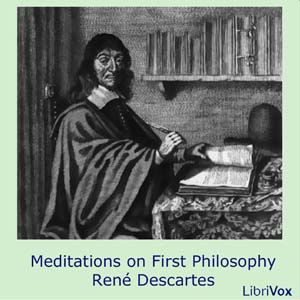
After several years working on a treatise putting forth his mechanistic philosophy and physics, Descartes shelved the project when his contemporary, Galileo, was charged with heresy. That work, The World, was only published after Descartes’ death. It seems that Descartes must have had this, in part at least, in mind when writing his more famous philosophical works. This is especially clear in the Meditations, not only in the obsequiousness of the Letter of Dedication, but also in the specific mode of argument, which does not seek merely to found science upon grounds acceptable to religious authority, but to specifically found a mathematical science; one which clearly privileges mathematical demonstrations even over common sense judgments based upon everyday and constant experience. His Copernicanism, put forth posthumously in The World, would require just such a defense.
The Meditations are a central work of early modern philosophy, and play a crucial role in the conceptual development of basic perspectives and problems in the Western tradition, including substance dualism, external world skepticism, and the modern notion of the subject.
(Description by D.E. Wittkower)
9 episodes
The “Theses on Feuerbach” are eleven short philosophical notes written by Karl Marx in 1845. They outline a critique of the ideas of Marx’s fellow Young Hegelian philosopher Ludwig Feuerbach. The theses form a basis for the activism emphasised by Marx’s work, and this short text is perhaps best know for its ending - a Eureka for revolutionary socialism. The theses were written in 1845, but not published until 1888 (five years after Marx’s death), with slight modifications by Friedrich Engels. The original text was published in 1924. This translation is based on the 1888 version. (Wikipedia/Carl Manchester)Translated into the public domain by Carl Manchester.
1 episodes
A collection of fifteen short nonfiction works in the public domain. The essays, speeches, news items and reports included in this collection were independently selected by the readers, and the topics encompass history, politics, philosophy, science and religion. (summary by J. M. Smallheer)
Danger Signals and A Midsummer's Night Trip were coauthored by Jaspar Ewing Brady
15 episodes
The Critique of Practical Reason (Kritik der praktischen Vernunft) is the second of Immanuel Kant's three critiques, first published in 1788. It follows on from his Critique of Pure Reason and deals with his moral philosophy. The second Critique exercised a decisive influence over the subsequent development of the field of ethics and moral philosophy, becoming the principle reference point for ethical systems that focus on the rightness or wrongness of actions themselves, as opposed to the rightness or wrongness of the consequences of those actions. Subsequently termed “deontological ethics”, Kant’s ethical system also laid the groundwork of moral absolutism, the belief that there are absolute standards against which moral questions can be judged, and that certain actions are right or wrong, devoid of the context of the act. (Summary by Wikipedia and Ticktockman)
19 episodes
In this book, his most famous, Max Stirner presents a philosophical case for a radical egoism that shuns the socially-oriented outlooks of both "establishment" ideologies and of revolutionaries in favor of an extreme individualism. The book is most widely talked about today only through the lens of other philosophers' thought: Karl Marx and Friedrich Engels launched a famous assault on it in The German Ideology, and some draw a connection between Stirner's thoughts here and Nietzsche's egoism a generation later. But it is worth reading in its own right, as much for its lyricism as the challenge of its philosophical proposals. (Summary by Mat Messerschmidt)
40 episodes

The Age of Reason: Being an Investigation of True and Fabulous Theology, a deistic treatise written by eighteenth-century British radical and American revolutionary Thomas Paine, critiques institutionalized religion and challenges the inerrancy of the Bible. Published in three parts in 1794, 1795, and 1807, it was a bestseller in America, where it caused a short-lived deistic revival. British audiences, however, fearing increased political radicalism as a result of the French revolution, received it with more hostility. The Age of Reason presents common deistic arguments; for example, it highlights the corruption of the Christian Church and criticizes its efforts to acquire political power. Paine advocates reason in the place of revelation, leading him to reject miracles and to view the Bible as an ordinary piece of literature rather than as a divinely-inspired text. Yet, The Age of Reason is not atheistic: it promotes natural religion and argues for a creator-God. (Summary by Wikipedia)
37 episodes

In the early 1900's Dr. Maria Montessori began to reform educational methods with her work the 'Case dei Bambini' in Rome, Italy. Montessori began her work by developing methods to educate mentally retarded children, the method she developed was used with several children who at age eight took the state examinations in reading and writing, the children passed with above average scores. Because of this success (which is known as the 'first Montessori Miracle') Dr. Montessori was asked to open a school for children in Rome which she did. It was called the Case dei Bambini or “Children's House”. Now 101 years after the opening of the first Children's House we have recorded the first English translation of "The Montessori Method" by Maria Montessori. This book explains the Montessori Method of Education which supports “spontaneous self-development” of children and is used in the Case dei Bambini as well as many many Montessori Schools through out the world. (Written by Shurtagal and Wikipedia)
23 episodes
Marius the Epicurean is a philosophical novel written by Walter Pater, published in 1885. In it Pater displays, with fullness and elaboration, his ideal of the aesthetic life, his cult of beauty as opposed to bare asceticism, and his theory of the stimulating effect of the pursuit of beauty as an ideal of its own. The principles of what would be known as the Aesthetic movement were partly traceable to this book; and its impact was particularly felt on one of the movement's leading proponents, Oscar Wilde, a former student of Pater at Oxford. (Summary from Wikipedia)
14 episodes
Allen's books illustrate the use of the power of thought to increase personal capabilities. Although he never achieved great fame or wealth, his works continue to influence people around the world, including the New Thought movement. Allen's most famous book, As a Man Thinketh, was published in 1902. It is now considered a classic self-help book. Its underlying premise is that noble thoughts make a noble person, while lowly thoughts make a miserable person. (Summary by Wikipedia)
8 episodes
An Introduction to Metaphysics (Introduction a la Metaphysique) is a 1903 essay by Henri Bergson that explores the concept of reality. For Bergson, reality occurs not in a series of discrete states but as a process similar to that described by the Greek philosopher Heraclitus. Reality is fluid and cannot be completely understood through reductionistic analysis, which he said "implies that we go around an object", gaining knowledge from various perspectives which are relative. Instead, reality can be grasped absolutely only through intuition, which Bergson expressed as "entering into" the object. (Summary by Wikipedia)
5 episodes
"How selfish soever man may be supposed, there are evidently some principles in his nature, which interest him in the fortunes of others, and render their happiness necessary to him, though he derives nothing from it, except the pleasure of seeing it." (from The Theory of Moral Sentiments)
31 episodes

Di Zi Gui (弟子规), in English, means the Standards for being a Good Student and Child. It is an ancient book based on the teaching of the great Confucius that emphasises on the basic requisites for being a good person and guidelines for living in harmony with others. The source for the main outline of it is from Analects of Confucius, Book 1, Chapter 6, where Confucius said:"A young man should be a good son at home and an obedient young man abroad, sparing of speech but trustworthy in what he says, and should love the multitude at large but cultivate the friendship of his fellow men. If he has any energy to spare from such action, let him devote it to making himself cultivated."There are altogether seven chapters in Di Zi Gui, with each chapter listing one duty that a good person should follow in life. (From Wikipedia)《弟子规》(原名《訓蒙文》)是中国传统的启蒙教材之一,作者是清朝康熙年间的秀才李毓秀。後經賈存仁修訂改編而成為弟子規。其內容取自《論語·學而篇》中的第六條:「弟子入則孝,出則弟,謹而信,汎愛眾,而親仁,行有餘力,則以學文。」 《弟子规》是以三字一句,兩句一韻的的文体方式編纂而成。然后再以《總敘》、《入則孝》、《出則弟》、《謹》、《信》、《汎愛眾》、《親仁》和《餘力以學文》等部份来加以演述。(维基百科)
3 episodes
"The inner working of my soul, which I wish to speak of here, was not the result of a methodical investigation of doctrinal theology, or of the actual texts of the gospel; it was a sudden removal of all that hid the true meaning of the Christian doctrine – a momentary flash of light, which made everything clear to me. It was something like that which might happen to a man who, after vainly attempting, by a false plan, to build up a statue out of a confused heap of small pieces of marble, suddenly guesses at the figure they are intended to form by the shape of the largest piece; and then, on beginning to set up the statue, finds his guess confirmed by the harmonious joining in of the various pieces." (Extract from Chapter 1)
14 episodes
The Social Contract outlines Rousseau's views on political justice, explaining how a just and legitimate state is to be founded, organized and administered. Rousseau sets forth, in his characteristically brazen and iconoclastic manner, the case for direct democracy, while simultaneously casting every other form of government as illegitimate and tantamount to slavery. Often hailed as a revolutionary document which sparked the French Revolution, The Social Contract serves both to inculcate dissatisfaction with actually-existing governments and to allow its readers to envision and desire a radically different form of political and social organization. (Summary by Eric Jonas)
48 episodes
Pascal's Pensées is widely considered to be a masterpiece, and a landmark in French prose. When commenting on one particular section (Thought #72), Sainte-Beuve praised it as the finest pages in the French language. Will Durant, in his 11-volume, comprehensive The Story of Civilization series, hailed it as "the most eloquent book in French prose." In Pensées, Pascal surveys several philosophical paradoxes: infinity and nothing, faith and reason, soul and matter, death and life, meaning and vanity—seemingly arriving at no definitive conclusions besides humility, ignorance, and grace. Rolling these into one he develops Pascal's Wager. (Summary from Wikipedia)
19 episodes
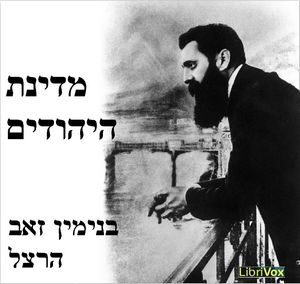
Der Judenstaat (German, The Jewish State) is a book written by Theodor Herzl and published in 1896 in Leipzig and Vienna by M. Breitenstein's Verlags-Buchhandlung. It was originally called "Address to the Rothschilds" referring to the Rothschild family banking dynasty which was very influential in the realization of a Zionist state in Palestine. It is considered to be one of the most important texts of early Zionism. As expressed in this book, Herzl envisioned the founding of a future independent Jewish state during the twentieth century. He argued that the best way of avoiding anti-Semitism in Europe was to create this independent Jewish state. Herzl, who had lived as a secular, largely assimilated Jew, was fluent in neither Hebrew nor Yiddish. His lack of contact with Jewish culture and intellectual currents, and his limited contact with Jews less assimilated than he prior to hitting upon the idea of a Jewish return to Zion, led him to imagine that popular Jewish support for a Jewish State elsewhere than in Israel was conceivable. In Der Judenstaat, Herzl noted the possibility of a Jewish state in Argentina. (Summary by Wikipedia)Translated into Hebrew by Michal Berkovitch.
13 episodes
Change your life by changing your thoughts. The Majesty of Calmness is your guide to attracting prosperity, manifesting opportunities, and managing stress—all while discovering the values most precious to you. (Summary by Andrea Fiore)
7 episodes
The Way of Peace is your guide to the power of meditation; self and truth; the acquirement of spiritual power; the realization of selfless love; entering into the infinite; saints, sages, and saviors; the law of service; and the realization of perfect peace. (Summary by Andrea Fiore)
7 episodes
How does occultism regard vegetarianism? It regards it very favorably, and that for many reasons. These reasons may be divided into two classes: those which are ordinary and physical, and those which are occult or hidden. Let us see in detail why a vegetarian diet is emphatically the purest and the best. (Summary from Vegetarianism and Occultism)
15 episodes

Summary from The Path of Prosperity:
I looked around upon the world, and saw that it was shadowed by sorrow and scorched by the fierce fires of suffering. And I looked for the cause. I looked around, but could not find it; I looked in books, but could not find it; I looked within, and found there both the cause and the self-made nature of that cause. I looked again, and deeper, and found the remedy.
I found one Law, the Law of Love; one Life, the Life of adjustment to that Law; one Truth, the truth of a conquered mind and a quiet and obedient heart. And I dreamed of writing a book which should help men and women, whether rich or poor, learned or unlearned, worldly or unworldly, to find within themselves the source of all success, all happiness, all accomplishment, all truth. And the dream remained with me, and at last became substantial; and now I send it forth into the world on its mission of healing and blessedness, knowing that it cannot fail to reach the homes and hearts of those who are waiting and ready to receive it.
7 episodes






